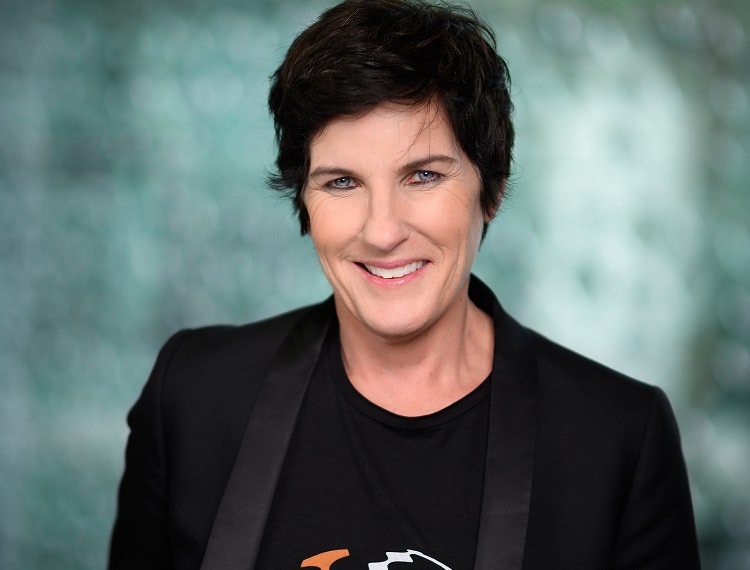We no longer need to wheel tea trolleys in short skirts – but there’s still a long way to go

The 1980s doesn’t seem so long ago. But for women in the workplace, it was a different world.
When I started my first job, writing cheques in an accounts payable office, it was abundantly clear that equality was not top of the agenda. Regardless of the number of male clerks in the office, it was the exclusive job of women to wheel the tea trolley to serve the executives. Oh, and if you were walking down the “Golden Mile” where the board members worked, by rule you had to wear a skirt.
In most businesses in the 2020s, I hope that such flagrant discrimination would be quickly – and comprehensively – challenged. But although the problems facing women aren’t as clear cut today, I still see them. This matters to me all the more in the advertising sector, where our content must reflect the customers – and audiences – that we serve.
It’s up to all of us, as individuals and leaders, to stand up against the microaggressions holding back women today.
Challenging the everyday dynamic
I’ve worked in many roles in advertising and technology, and on my journey to CEO, I’ve seen lots of change. Nonetheless, everyday behaviours and assumptions are still preventing women from progressing in their careers. Women are overlooked for roles, talked over and forced to take a back seat in meetings where they are the subject matter expert in the room.
Today, many issues are the result of unconscious, rather than deliberate, bias. But this can have a serious, harmful impact on women’s progression. Research has shown, for example, that when female scientists applied to use the Hubble Space Telescope, their likelihood of acceptance almost doubled if their application was anonymised to hide their gender.
Unconscious bias is a human tendency and something that acts on us all – and certainly not only men – in different ways. But that means that complacency is not an option. This is especially important in advertising. In our workplace, a lack of equality directly translates into the work that we produce for our clients.
In any company, if we’re going to connect with our customers, we have to reflect them. It’s not only the right thing to do, but essential for success. As individuals – and as leaders especially – we have to proactively challenge and change behaviour, to create a more equal working environment.
Becoming comfortable with challenge
If we’re to challenge the norm and champion gender equality, we must take positive action at every level of the business. As organisations, what you say matters and it’s important to make an active commitment to change. For example, at Criteo we have a gender equality agreement to build awareness of the importance of this issue for every member of staff.
We recently took the positive step to appoint Rachel Scheel as our first Senior Vice President of Global Diversity and Inclusion. Rachel will lead our dedicated pay parity action plan, underlining the ongoing commitment to champion an inclusive and diverse workplace for all of our talent.
Part of her role will include championing and creating better representation across teams, from HR and IT to creative and advertising. It’s much more than setting targets though – a DE&I mindset that runs through and shapes the makeup of the organisation is essential.
Under Rachel’s guidance, we’ll be working with our leadership teams, marketing, communications, internal branding and HR to create a global DE&I vision and strategy. This foundation will enable us to measure success, communicate our vision internally and externally, and deliver a strategy for current employees and future talent. What’s more, I’ll be specifically reviewing our end-to-end talent hiring practices to ensure they align with our DE&I practices.
But it’s also about using data to really understand the nuances of the issue. For instance, studies show that women are frequently held to a higher standard than men. Understanding these issues with internal and external data – together with a mindset shift in culture – will allow us to take targeted action.
But what I would also say to everyone – no matter your position – is that it’s up to each individual to take responsibility for your own behaviours and proactively create change. Be honest with yourself first and foremost and consider if you truly allow women to have the same opportunity as men.
We can all act on autopilot, on the basis of assumptions or bias. Try to make it something you notice, question and challenge, whether within yourself or others. The more we can feel comfortable to challenge one another, the more we can create change. And receive feedback from others gratefully: remember, otherwise you’d never know.
And if you’re on the receiving end of difficult behaviours? Never feel that you have to be silent. Sit up straighter, be clear and confident in what you have to say and don’t let yourself be talked over. If the challenges continue, talk to your colleagues, manager and network. You have an absolutely equal right to be heard.
Nothing would change without challenge
The theme of the most recent International Women’s Day, choose to challenge, has sparked many productive conversations about the barriers facing women. But it’s not enough to talk about gender equality one day a year; far too many people face barriers every day.
In the years ahead, I hope to see a workplace that’s even more inclusive: where people of every gender, background, sexuality and race are well-represented and can achieve whatever they want to. But it’s up to us all to proactively facilitate that journey. Remember, nothing would change if we didn’t choose to challenge.
Megan Clarken, CEO at Criteo











Responses